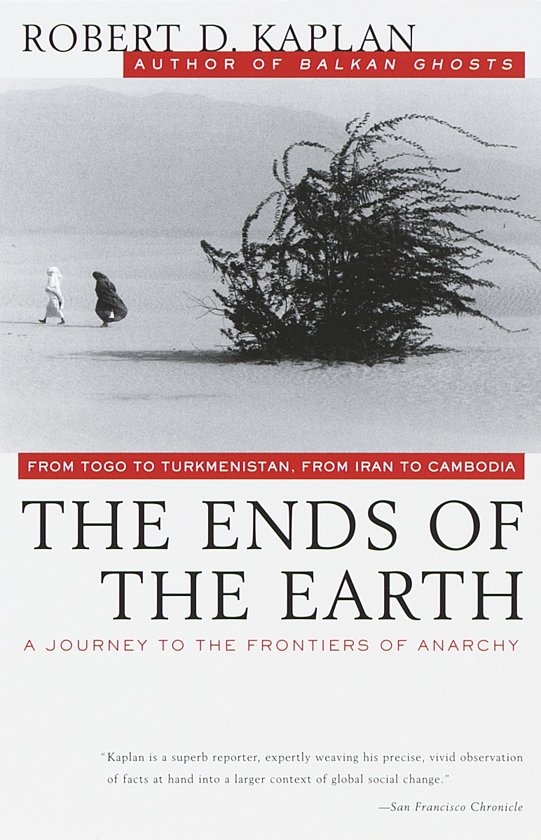Discvr
menu zoek
The Ends of the Earth
In The Ends of the Earth, Robert D. Kaplan travels from the devastated countries of West Africa and the fundamentalist enclaves of Egypt and Iran to the culturally explosive lands of Central Asia, India, Pakistan, and Southeast Asia with hardly more than a notebook and a backpack. Kaplan's intention was to investigate firsthand the effect of population explosion and environmental degradation in these countries and to see how the various cultures he encountered responded to them. But as he traveled, talking to gun smugglers and government ministers, warlords and shantytown dwellers, he discovered that the real problem, in places as far afield as Sierra Leone and western China, was the reemergence of longstanding cultural rivalries and the dissolution of national boundaries as regions redefine themselves along ethnic and historic lines. Kaplan's ground-level experiences allow him to avoid grandiose generalizations about the clash of civilizations and to replace them with intimate portraits of the men and women he encounters: Rafighdoost, Khomeini's fiercely loyal chauffeur; Ali Abdel Razag, keeper of the Aswan High Dam; and Ayshe Tanrikulu, a squatter on Golden Mountain, a shantytown on the outskirts of Ankara, who hopes that her sons will one day be doctors or engineers. It is in the squalor of daily existence and in people's fears, frustrations, and dreams that Kaplan looks for the key to a country's future. The Ends of the Earth offers an intimate portrait of the devastated parts of the world, whose cultural disasters - like those in Bosnia, Chechnya, and Rwanda today - will dominate our attention and remake the world of tomorrow.

